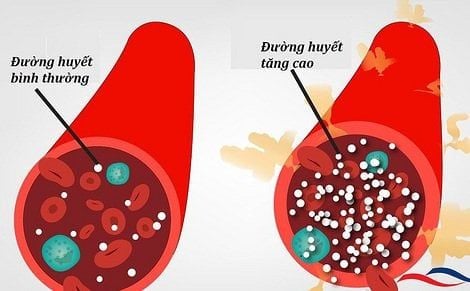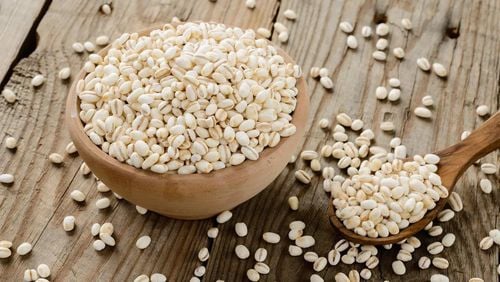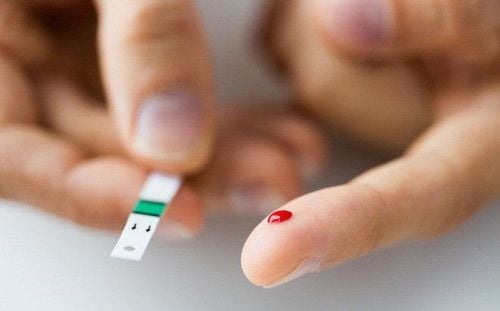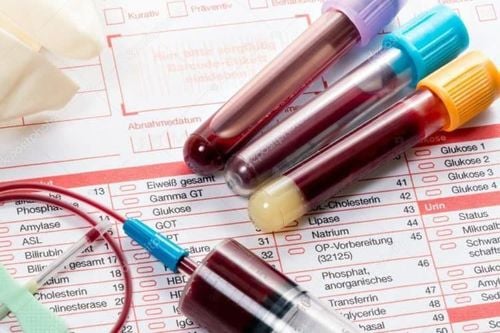This is an automatically translated article.
The article is professionally consulted by Master, Doctor Vu Thi Duyen - Department of Medical Examination & Internal Medicine - Vinmec Hai Phong International General Hospital.
In Vietnam, there are about 4.8 million people with diabetes, especially with the development of economy and society, the prevalence of diabetes tends to increase among young people. Regular and periodic monitoring of blood glucose levels is extremely important for the prevention and treatment of diabetes. So what is the normal glycemic index?
1. What is the glycemic index?
Sugar (or blood glucose) is the body's main source of energy and is also an extremely important and necessary source of fuel for organs, especially the nervous system and brain organization.The glycemic index (GI) is defined as the value indicating the concentration of glucose in the blood, usually measured in units of mmol/l or mg/dl. Blood glucose levels are constantly changing from day to day, even minute to minute, especially related to diet and daily living. There is always a certain amount of sugar in the blood, if blood sugar is often high, it will lead to diabetes and affect many organs, especially the kidneys, blood vessels, etc...

The glycemic index is meaningful to help determine what the person's blood glucose concentration is at the time of the survey. From there, we can determine whether the patient is in the normal range, pre-diabetes or is diabetic.
Trắc nghiệm: Huyết áp của bạn có đang thực sự tốt?
Huyết áp cao hay thấp đều ảnh hưởng đến tình trạng sức khỏe con người. Để biết tình trạng huyết áp của bạn có thực sự tốt không, hãy làm bài trắc nghiệm sau đây để đánh giá.2. What is the average person's sugar intake?
The safe blood sugar index for normal people is as follows:Any blood sugar: < 140 mg/dL (7.8 mmol/l). Fasting blood sugar: < 100 mg/dL (< 5.6 mmol/l). After meals: < 140 mg/dl (7.8 mmol/l). HbA1C: < 5.7 %. Specifically:
Fasting blood sugar: The fasting blood sugar index is measured for the first time in the morning without fasting for at least 8 hours, then you have not eaten or drank any food, The fasting blood sugar index is at A range between 70 mg/dL (3.9 mmol/L) and 92 mg/dL (5.0 mmol/L) is normal.
Over the course of research, medical experts found that people with fasting blood sugar levels in the above range are not at risk of developing diabetes in the next 10 years or so.
Postprandial blood sugar: The postprandial blood sugar index of a normal healthy person is less than 140mg/dL (7.8 mmol/L) measured within 1-2 hours after eating.
Blood sugar at bedtime: A normal person's bedtime blood sugar will range from 110-150mg/dl (equivalent to 6.0-8.3mmol/l).
Hemoglobin A1c (HbA1c) test: HbA1c below 48 mmol/mol (6.5%) is normal. HbA1C is commonly used to diagnose diabetes.
A blood sugar level below 70 mg/dL (3.9 mmol/L) is considered hypoglycemia. This is a dangerous condition and requires immediate medical attention. This drop in blood sugar can still continue and cause the patient to fall into a coma, brain damage. However, if blood sugar is high, it may be due to a decrease in the ability of the pancreatic cells to secrete insulin or because there is not enough insulin in the body but it does not work (insulin resistance). To meet the needs of the body, the pancreas has to work harder and harder until it is overloaded and damaged. Besides, it also makes blood vessels harden, also known as atherosclerosis. Almost every part of the body is susceptible to damage due to a high glycemic index.
3. How to maintain a stable glycemic index
Maintaining a healthy blood sugar level requires a healthy diet, exercise and a healthy lifestyle to maintain good blood sugar levels. You can refer to some of the following ways to help stabilize blood sugar:Supplements with bright red and blue foods: Foods containing anthocyanins are found in blue and bright red foods such as grapes, berries, and strawberries. and berries for better blood sugar control.

Monitor blood sugar regularly and regularly. Regular intake of hypoglycemic drugs or insulin injections: It is necessary to take the medicine according to the instructions of the doctor to avoid unwanted side effects, to comply with the prescription, the treatment schedule of the doctor, not to change it arbitrarily. dosage or adding new drugs without your doctor's consent; Implement a reasonable and balanced diet with ingredients: The recommended daily nutritional composition is glucid 50-60%, protid 15-20%, lipid 20-30% of total calories in the day. Especially not to skip breakfast because breakfast helps stabilize blood sugar throughout the day. A healthy mix of proteins, carbs and fats plus fruits or nuts will help you maintain a steady blood sugar level; Exercise: You should exercise regularly, at least 30 minutes a day, 5 days a week, pay attention to check blood sugar, blood pressure, and cardiovascular status before exercising. Sweating during exercise helps prevent diabetes. When maintained with a consistent exercise regimen for a long time, cells become more sensitive to insulin. Drinking milk: Dairy products contribute to a significant reduction in the risk of insulin resistance, as the proteins and enzymes in milk slow down the conversion of sugar in food into blood sugar. Drinking milk every day can reduce the risk of insulin resistance by up to 20%. Master. Doctor. Vu Thi Duyen has more than 10 years of experience in general medical examination and treatment, especially has strengths in examination and treatment specialized in nephrology - Endocrinology. The doctor has participated in many domestic and foreign seminars and is currently a Nephrologist - Endocrinologist at the Department of General Internal Medicine, Vinmec Hai Phong International General Hospital. To register for examination and treatment with Pediatricians at Vinmec International General Hospital, please make an appointment on the website for service.
Please dial HOTLINE for more information or register for an appointment HERE. Download MyVinmec app to make appointments faster and to manage your bookings easily.














